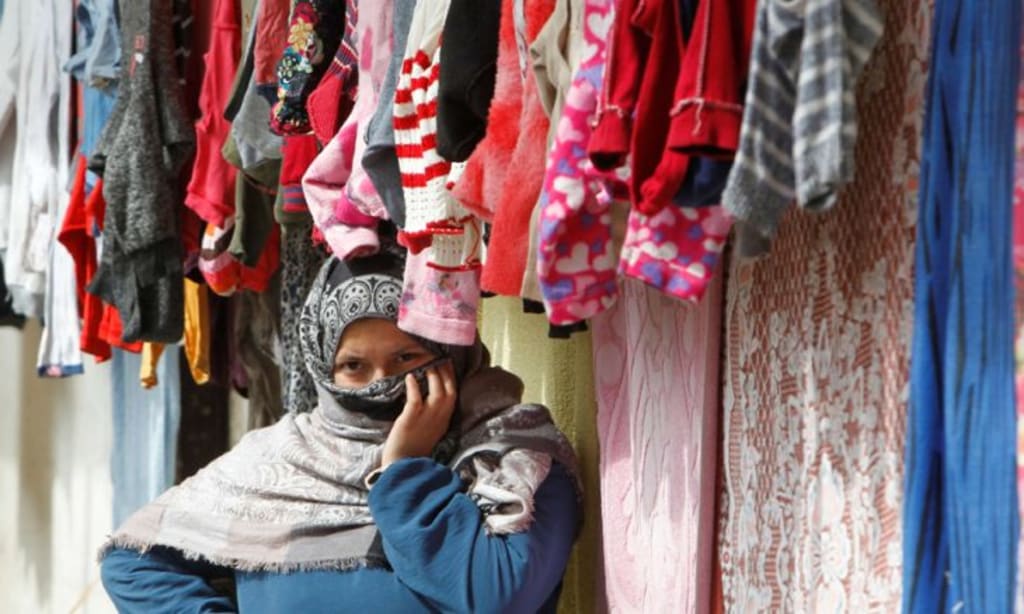Why do Arabs buy weapons instead of bread?
The Arab world is heading towards more poverty, hunger and unemployment

The Arab world is heading towards more poverty, hunger and unemployment, even though it sleeps on a lake of various natural resources, and the real reason behind this is mismanagement and political corruption, and the lack of logic among those who run our Arab countries, as many Arab countries still buy weapons and ammunition With billions of dollars, instead of buying bread and food with this money, and instead of investing it in development and development projects.
There is a great imbalance in our Arab world, as our country is still among the largest buyers of weapons in the world, and at the same time it is among the largest importers of grain, wheat, food and basic materials. In fact, it is the absence of logic that created this equation, as those who need to import their food from abroad He should never think about buying weapons and military fighters, because a hungry person cannot drive an F-16, and a people who does not grow their wheat or produce their bread cannot wage war against others, and therefore Arabs buy weapons that rust in their stores, and waste money that It is meant to be spent on eliminating poverty, hunger and destitution among the people.
The figures that illustrate this imbalance are many, as the Arabs constitute only about five percent of the population of the globe, but they import more than 20% of the grain traded in the world, and the poverty rate in the Arab world (in the 22 countries) as an average in the year is 14%, while it is The general percentage in the world as a whole is 9.1%, according to the figures of the World Bank, which says that it was only 7.8% before the Corona pandemic, meaning the poverty rate in our Arab world is double the global average, or twice the size of poverty in the universe! And instead of the Arabs looking at how to get rid of poverty and provide food for its hungry residents, they are preoccupied with internal wars, and in concluding arms deals that do not benefit from them, and there is no room for their use. "Stockholm" indicated that the ten countries that buy the most weapons in the world, including four Arab countries. According to the data of the Stockholm Institute, Egypt alone occupies the third place in the world in terms of arms imports, and accounts for 5.7% of arms trades in the world, in addition to that Egypt’s arms imports increased during the past four years by 73%, compared to what it was In the preceding four years.. At the same time, we find that Egypt imports about 80% of its wheat from Russia and Ukraine, and the total Egyptian wheat imports from abroad exceed 5% of the wheat traded in the world, meaning that Egypt acquires the same share of Wheat market and arms market in the world! Just a few weeks ago, the United States agreed to sell Jordan 16 military combat aircraft with a total value of $4.2 billion, and this is an astronomical sum by all standards if we know that the country's total general budget in the current year is $15 billion, meaning that we are talking about one deal that constitutes about a third of the budget, in a country where a quarter of the population is unemployed (24. 8%), and this percentage rises among young people to 45%, according to official government data. There are many similar examples that confirm that our Arab countries buy weapons at the expense of bread, food, development and modernization, and most of the arms buyers do not fight any wars and are not party to any armed conflicts. Rather, Arab arms buyers have peace agreements with Israel and establish normal relations with the occupation.
The conclusion is that our Arab peoples are paying the price for these arms deals, by increasing the rates of hunger, poverty, unemployment and economic backwardness, and the legitimate question here is: Where do these weapons go? How can we convince the Arab person that it is more important than bread and more important than securing his daily food?





Comments
There are no comments for this story
Be the first to respond and start the conversation.